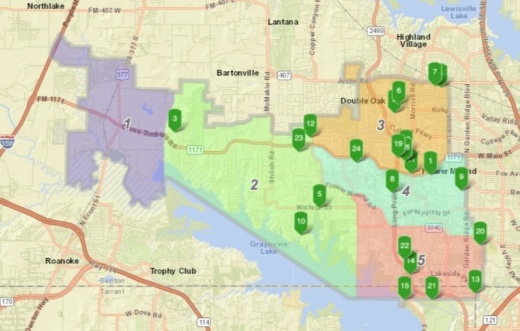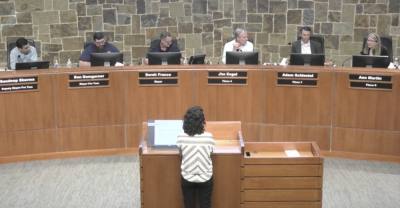The study looks at the town's actual costs compared with the fees it charges for everything from a new water heater permit to a single-family building permit. The town has more than 350 permit fees, according to a July 15 presentation. The study set out to perform a cost analysis, determine what revenue the town could recover and look for opportunities to streamline the fee structure, the presentation stated.
The study was among the topics discussed as part of council's strategic planning session July 15.
A work session will be scheduled in the coming months to review the study results and determine how to move forward.
Town Council members also requested a work session to further discuss the effects from the new building permit fees and impact fees that were adopted earlier this year. Those fees—such as a water impact fee or wastewater impact fee—were increased to cover more of the town's costs of development.
At the July 15 session, staff offered some examples of the change in costs under the new fee structure.
An 858-square-foot coffee shop with a drive-thru proposed on the east side of town, for example, would face about $35,294 in fees compared with about $12,249 in fees under the previous cost structure.
That same project proposed on the west side of town would trigger more than $115,331 in fees. Much of the difference is attributed to road impact fees since infrastructure on the town's west side is less developed.
Officials discussed whether the town's higher fees could be a deterrent for developers. But lowering fees could shift the costs of new development back onto the town, according to the discussion. There was also concern that more developers would be asking the town to waive those fees as a condition to develop in Flower Mound.
"When is this fee so high that you don't get anything?" asked JP Walton, assistant to the town manager. "We don't know that yet."
Council Member Ann Martin said the town should not assume that developers will take their projects to neighboring cities to avoid the town's higher fees.
"It's not a foregone conclusion that we will lose those deals," she said.
During the July 15 meeting, the council also talked about the tools used to notify residents about proposed developments. The town is required to publish public notice in a local newspaper and send notices by mail to property owners within 200 feet of a proposed development.
The town also has an interactive map online that details all of the projects submitted for consideration. The map is available at www.fmdevmap.com. There is also a tool for residents to sign up to receive notifications about proposed developments or other projects. Residents may sign up for that tool through this link.
Other topics discussed as part of the strategic planning session included the Lakeside Business District, the Cross Timbers Conservation Development District and mixed-use zoning district regulations.
A summary of the planning session is expected to be presented to council for review.






